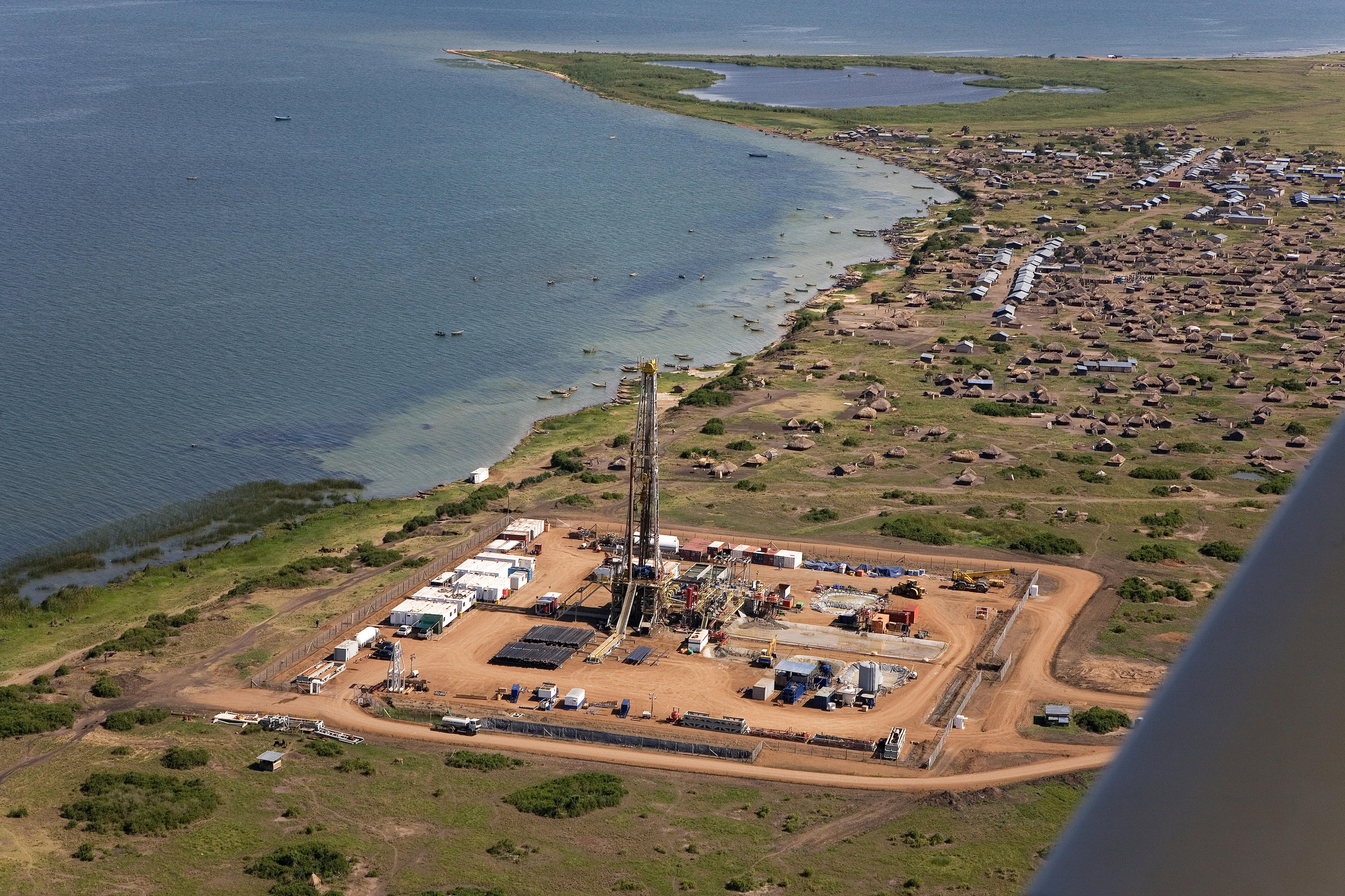Prime
Speculators are partly to blame for high fuel prices

A fuel price board at Total. Fuel prices have crossed the Shs6,000 aaa mark. PHOTO/ EDGAR R. BATTE
What you need to know:
Climbing upwards. Oil speculators have for long played behind the scenes to determine oil price movements in the immediate and long term. They use financial instruments such as oil futures in trading which drives wild swings in crude oil prices
In the world of oil, a lot can happen in a single day. An outbreak of war, or a pandemic could either lead to a surge or a dip in prices.
It is common knowledge that oil producers use the basic economics of demand and supply, to determine such price changes, or even boost production.
But beyond such mentioned factors in determining oil price and production, oil speculators have for long played behind the scenes to determine oil price movements in the immediate and long term.
Love or hate them—they will have an influence on whichever side of the aisle you stand. And this is not for nothing.
Speculators use financial instruments such as oil futures in trading but for long, this has a final impact on the crude oil price.
According to Tom Ayebare Rukundo, an economic and financial analysis manager, at Petroleum Authority of Uganda, oil futures are financial derivatives, or financial instruments that derive their value from a physical product such as crude oil.
Oil futures therefore have two parties with an agreement to buy or sell a certain number of barrels of oil at a predetermined price, on a predetermined date.
To make sense of oil futures, one needs to refer to the mathematical model on oil futures derived on the Investopedia website which paints an illustration.
Imagine an oil producer plans to produce one million barrels of oil over the next two years. It will be ready for delivery in two years.
But, if the current oil price is $100 per barrel, the producer has an option to produce the oil and then sell it at the current market price at a future date, or two years from today.
Given the volatility of oil prices, the market price at that time could be very different than the current price. If the oil producer thinks oil will be higher in two years, they may opt not to lock in a price now.
But, if they think $100 (Shs372,751) is a good price, they could lock in a guaranteed sale price by entering into a futures contract.
The assumption made in the mathematical model is that; the two-year oil futures contracts are priced at $100 per (Shs372,751) barrel.
By entering into this contract, in two years, the producer is obligated to deliver one million barrels of oil and is guaranteed to receive $100 million (Sh375.5b). The $100 price per barrel is received regardless of where spot market prices are at the time.

Engineers at Tilenga oil field. Oil, just like other assets with global appeal and usage, will be driven by speculation most if not all of the time.
Oil futures contracts take into account the current spot price, the risk-free rate of return, time to maturity, storage costs, dividends, dividend yields, and convenience yields.
Actual buying of crude oil takes one- off buys between two parties, but that is not the case with oil futures.
Rukundo says futures can be traded 100 times more than the actual production of oil that is being produced, helping buyers lock in specific prices.
Rukundo says in the United States of America, oil futures are standardised and traded on the stock market every day.
Trading is based on price movements, for instance, a downward price movement could allow the investor to add more liquidity to support their position.
“It is a very liquid aspect depending on the tenure of the instrument that you have. You can buy futures today and you get to October and realise you may not be able to take the crude oil, then you can sell them off to another buyer at a profit. That is why you have so many rapid movements in the price,” he says.
According to Investopedia website, end-users of oil purchase on the futures market in order to lock in a price; investors buy futures essentially as a gamble on what the price will actually be down the road, and they profit if they guess correctly.
Typically, they will liquidate or roll over their futures holdings before they would have to take delivery.
Are oil futures speculative?
The massive quantities of oil futures contracts being traded on a daily basis versus the actual oil production has caused some speculation and market sentiments. This has a heavy impact on oil price movements.
Rukundo says unique scenarios such as the Covid- 19 pandemic has led to demand for physical product – oil, forcing traders to sell off futures.
“If I owned futures for a million barrels of oil but I don’t own a refinery. I would have to get rid of it, because ultimately when that future matures and I still have it, I have to take the physical delivery,” Rukundo says. According to Rukundo, as futures mature, they tend to coincide with the actual price of the physical barrel of oil.
“Prices tend to coincide, that’s why you will usually find most of the firms or institutions that try to do price projections will use the (oil) futures prices as a basis of where the price will go because over time,” Rukundo explains.
Rukundo says oil futures are based on speculation and market sentiments, and currently has caused a $30 dollar premium markup on the Russia- Ukraine war leading to a surge to oil prices past the $100 (Shs375,000) mark.
“So we would then be at $80 (Shs300,000), but the $30 dollar (Shs112,515) premium is because Russia is such a massive producer of crude oil, and the fact that they have sanctions. If Russia was to shut down, many countries in Europe would go dark,” Rukundo explains.
Traders in oil futures are key determinants on the final global crude oil price but based on two aspects.
Rukundo says most of the oil that Uganda needs is imported hence the actions in the international market has an impact locally.
Experts’ perspective
According to the managing director of Alpha Capital Partners, a Ugandan firm focusing on sovereign asset management, foreign exchange trading strategies and financial markets advisory, speculators are an integral part of pricing in oil markets. They are almost the necessary evil if you like.
“Among the commodities most traded in the global markets, crude oil stands out,” Mr Kaboyo, who is also a former director financial markets at Bank of Uganda, told Prosper Magazine when contacted.
He continued: “Because of this, a number of oil trading instruments have developed overtime and this has attracted a number of different players, including hedgers and speculators—each one with distinct roles.”
According to Mr Kaboyo, players with commercial interest and physical exposure are called hedgers, while those without a physical position to offset are known as speculators. And for that, oil futures market cannot function without speculators providing liquidity and driving price discovery in a 24/7 market.
“What makes the oil futures market fertile ground is that the business is very lucrative given the volatility. That is where speculators thrive. The underlying asset is always in huge demand, highly liquid and speculators can easily leverage.
“This means they can borrow against future contracts and make a margin which in itself is a unique advantage compared to other traditional asset classes,” explains the global financial market analyst.
He continued: “Looking at the dynamics of the market, the relative size of the oil futures market and the physical market for oil, it is obvious that the daily trading volume of the futures market is several times larger than the daily oil production. That in itself describes the role of speculators in influencing the price of oil on a daily basis.”
For the director research at Bank of Uganda, Dr Adam Mugume, there is no doubt that oil, just like other assets with global appeal and usage, will be driven by speculation most if not all of the time.
“Correct, oil is an asset and like all asset prices, its price is partly driven by speculations,” he said when contacted mid last week for this article.
Dr Mugume note that oil prices are driven, for example, by a perception on what OPEC and other non-OPEC members will be producing, what is stored as reserves in big economies and how the demand might evolve, and this is currently influenced by the likelihood of recession in the USA, weak demand in China et al.
“However, these are usually not long lasting,” says Dr Mugume in an email response to Prosper Magazine.
“In the medium to long term, oil prices are driven by demand and supply. Supply is currently being influenced by the Russia-Ukraine war and the sanctions on Russia, since Russia has a big stake in global oil production.

An offshore oil drilling rig along the Lake Albert shores in Hoima district. Oil futures are based on speculation and market sentiments. PHOTO/ PAUL MURUNGI
“In addition, supply from Libya has been hampered by domestic conflict. USA, which is another major supplier, had scaled back its oil production. Environmental concerns on the other hand are not supporting new discoveries of oil but are more emphasizing alternatives to oil.
“All these suggest oil supply in the medium to long term is uncertain while for now demand is growing, especially so with likely economic growth recovery in emerging and developing countries, assuming the Russia-Ukraine conflict is short lived. The demand-supply mismatch certainly adds pressure on prices,” he wrote.
These complexities, according to Dr Mugume, mean : “we could continue to suffer oil prices related challenges for a while.”
“The alternative is to try and hedge against them, like building reserve capacities, regulatory measures to ensure no exploitation in pricing since oil business is often cartel in nature. Definitely, fast tracking Uganda’s oil production is the long run solution,” he concluded.





